Autoworkers at Mercedes-Benz in Alabama have been organizing to win their union. Today they met with UAW President Shawn Fain and Region 8 Director Tim Smith to talk about their path to victory. Here are remarks that President Fain shared with them:
Good afternoon, Union Family.
It’s my honor to be here, to be with so many badass, fed up autoworkers who are ready to stand up.
Today I’m here to talk about the path to victory. It’s a powerful idea. The path to victory. Because first things first — there is a path.
Before we can even talk about what we need to do to get what we deserve, we have to acknowledge one thing. Working class people, like all of you here today, have the power to change the world. You have the power to change your circumstances. You have the power to take back your time. To take back your life. To win real time off the job. A fair wage. Good healthcare you can afford. A better life for your family. For all of Alabama.
The first thing you need to do to win is to believe that you can win. That this job can be better. That your life can be better. And that those things are worth fighting for. That is why we stand up. That’s why you’re here today. Because deep down, you believe it’s possible.
There is a path. But here’s the other thing about the path to victory. It’s only a path. You have to walk it. Nobody can walk it for you. I didn’t come down here to tell you what all I’m going to do for you as the President of the UAW. That’s not what this is about. Everything you win in this fight will be because you won it.
You are in spitting distance of a life-changing victory. That’s because all of you are coming together with your coworkers to do the work of organizing your workplace. And the company knows it too. That’s why Mercedes is pulling out every trick in the book to instill fear, uncertainty, and division. To scare people off of standing up for a better life.
I’ve been meeting with UAW staff and with some of you. And what’s clear to me is we are doing things differently this time. This time, we are going to make sure we have leaders on each line, on each shift, talking to each other about building their union. That is the path to victory.
And it’s not just about the vote. True victory is not just winning a vote. We want to win big on the day of the election – but we also need to build that organizing muscle, that unity, and that determination to win big in a union contract. That’s what changes lives. That’s what this is all about.
But you have to walk that path to victory. You have to say – I’m ready to talk to my coworkers. I’m ready to have my name be public on a vote yes petition. I’m ready to go to work every day and proudly wear my UAW hat for everyone to see. I’m ready to stand up, strong and loud, and proud about this fight. I can’t win that for you. Our staff can’t win that for you. Only you can walk that path to victory.
Let me be clear, that doesn’t mean you’re walking alone. Our staff, our union, and hundreds of thousands of UAW members are behind you. Across this country, there are working-class people looking to you. For inspiration. For hope. And we’ve all got your back.
I opened these remarks with “union family,” because we are a family. But here in Alabama, it hits close to home. Many of you may not know this but my family’s roots are in the South. I have family from Alabama. And three of my grandparents were from Tennessee, one from Kentucky, and after the Great Depression, all of my grandparents had to move north. And they were blessed to hire in at GM and Chrysler in the early days of the UAW. They stood up for themselves and went and got a better life.
But the real meaning of union is not having to leave for greener pastures. Not having to leave your family and your life behind just to be able to live. The real meaning of union is fighting for a better life where you are. Because it’s your job. It’s your body. It’s your time. It’s your family. It’s your community.
I look around here and I see a lot of people who remind me of myself and my roots. I know struggle. I’ve lived paycheck to paycheck. I’ve been on unemployment. I’ve received government aid to get formula and diapers for my firstborn child.
Joining the union, the UAW, changed my life. It gave me a wage I could raise a family on. It gave me a job I could rely on. And it gave me hope for the future. So, I put everything I had into building this union. I walked that path. I know what it’s like to be out there at the gates, trying to get your coworkers organized. I know what it’s like to have to fight the company tooth and nail just to have a little dignity on the job. And I know if I didn’t do it, if regular autoworkers like me and you don’t stand up, nothing’s going to change. So, do it for yourself. Do it for your family. And we’ll have your back every step of the way.
You’re so close to the finish line. Some people get within inches of their goal and quit before they realize that if they’d have given one more push they would have reached it.
My running for president of the UAW was very similar. If I hadn’t relied on faith and faced fear and doubt and took on the insurmountable odds of running for president of the UAW, nothing would have changed.
People said I was crazy for running for President. Some who were previously in power tried to make the members afraid to vote for change. But the members took a leap of faith and voted for new leaders and look what we are accomplishing.
Our Big Three contract campaign was the same. People said we were crazy for going for the things we did. Companies said they couldn’t afford it. Companies made threats. The media said we were crazy.
But guess what? We focused on facts in our Big 3 campaign and strike. The fact that the companies made a quarter of a trillion dollars in a decade. The fact that CEO pay went up 40% over the previous 4 years. And the fact that workers were being left behind, although the workers generate those massive profits through their labor. 75% of Americans sided with us in that fight. Using the power of facts and a unified membership.
We won a record contract and the companies still paid out massive stock dividends to investors. CEOs are still giving themselves massive raises, and business is fine.
It’s the same here in Alabama.
Facts: The German three made double what the Big Three made in the last decade. A half a trillion. $460 billion. Mercedes’s CEO got an 80% raise last year. The eight managers on the Mercedes management board got a collective $27 million raise last year. The average Mercedes executive makes $3,600 an hour. It would take a Mercedes production worker at the top rate two years to make what a Mercedes executive earns in one week.
The company, the Governor, and the Business Council are trying to make you afraid to stand up, because you are so close to realizing a life many thought wasn’t possible. Mercedes is using fear, uncertainty, and division because they are afraid.
Mercedes is afraid of you having a voice in your work life. Mercedes is afraid of sharing any control over your work lives. Mercedes is afraid of paying you the wages and benefits you deserve for the massive profits your work, your sacrifice, your blood, and your sweat create. You are an at-will employee, you have no rights, and management has all the control. It’s time to change that.
Years ago, my grandparents had to leave Tennessee to live the American Dream. You don’t have to leave. You can achieve it right here in Alabama.
The first thing I do when I get up every day, daily reading and pray. Recently, I thought of you when I read my daily reading, Hebrews 11:1, “Faith means being sure of the things we hope for and knowing that something is real even if we do not see it.”
The only people who can organize the South are the workers in the South. And those workers who stand up are forever going to go down in history for doing what so many people said was impossible. Why not you? Why not here?
I said during our campaign at the Big Three that this is our generation’s defining moment. That faith the size of a mustard seed can move mountains, and we moved mountains.
Now, here in Alabama, we have another mountain to move. This is your defining moment to change your lives. To change America. And to change the world for the better. So, let’s walk down that path to victory together in Solidarity and let’s finish the job.
So, I came here not to win this thing for you. Not to tell you what to do. I came here to find out for myself the answer to one question. Are you ready to Stand Up? I believe you are, and I believe in you.
If you’re ready, the time is now. This is your defining moment. If we have public supporters in every department, on every line, on every shift, Mercedes workers will be guaranteed to win your election. Raise your hand if you can commit to being that person for your line.
Before you leave today, put your name on the public petition and join your coworkers on the path to victory. We will not let the company divide us. That’s how they win. Solidarity is our strength. That’s how we win.
This isn’t about power, It’s about control. Without a Union contract, they have all the control. You have the power. You just have to recognize it and use it. Let’s finish the job that started so long ago. Let’s walk a new path for working-class people together in solidarity.
Thank you.





Penn Postdocs and Research Associates Win Their Union
UNION PLUS – COLLEGE PROGRAM
NYC Mayoral Candidate Zohran Mamdani and AG Letitia James Rally with Striking UAW Legal Workers to Demand Resources Needed to Represent Vulnerable New Yorkers